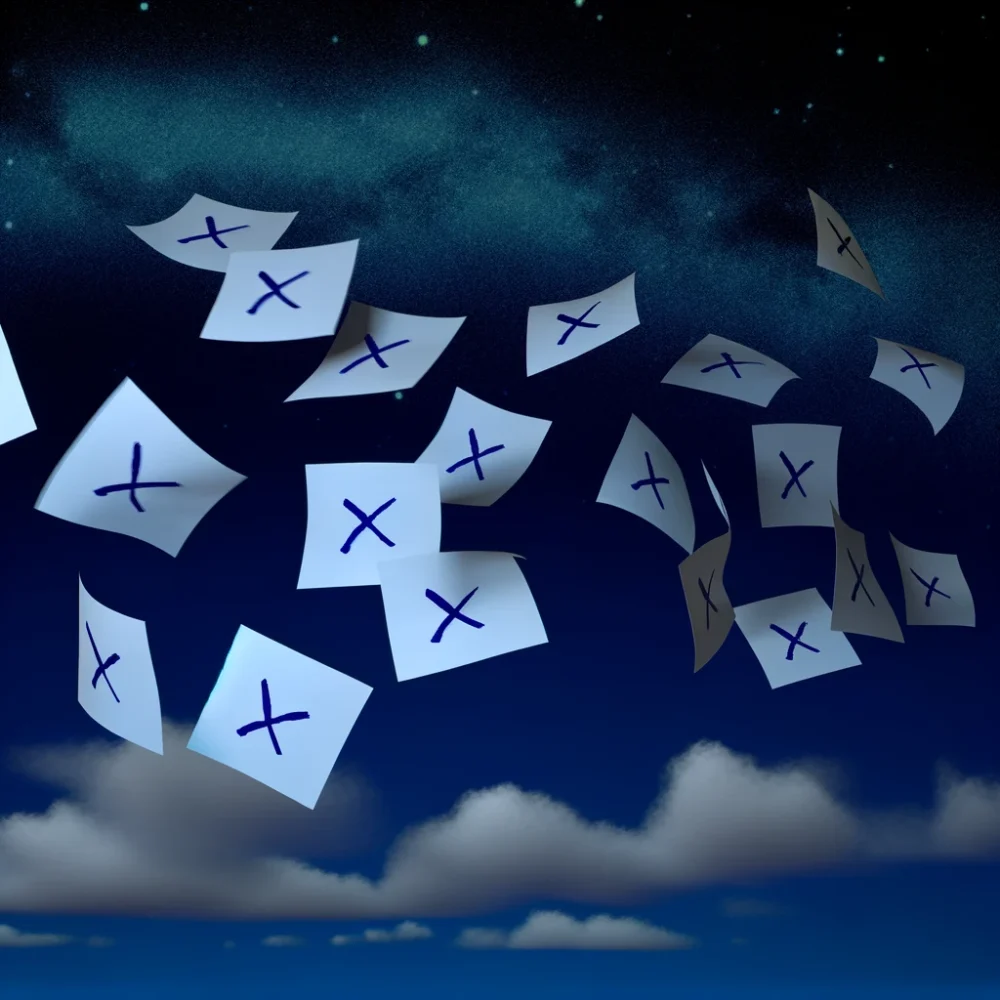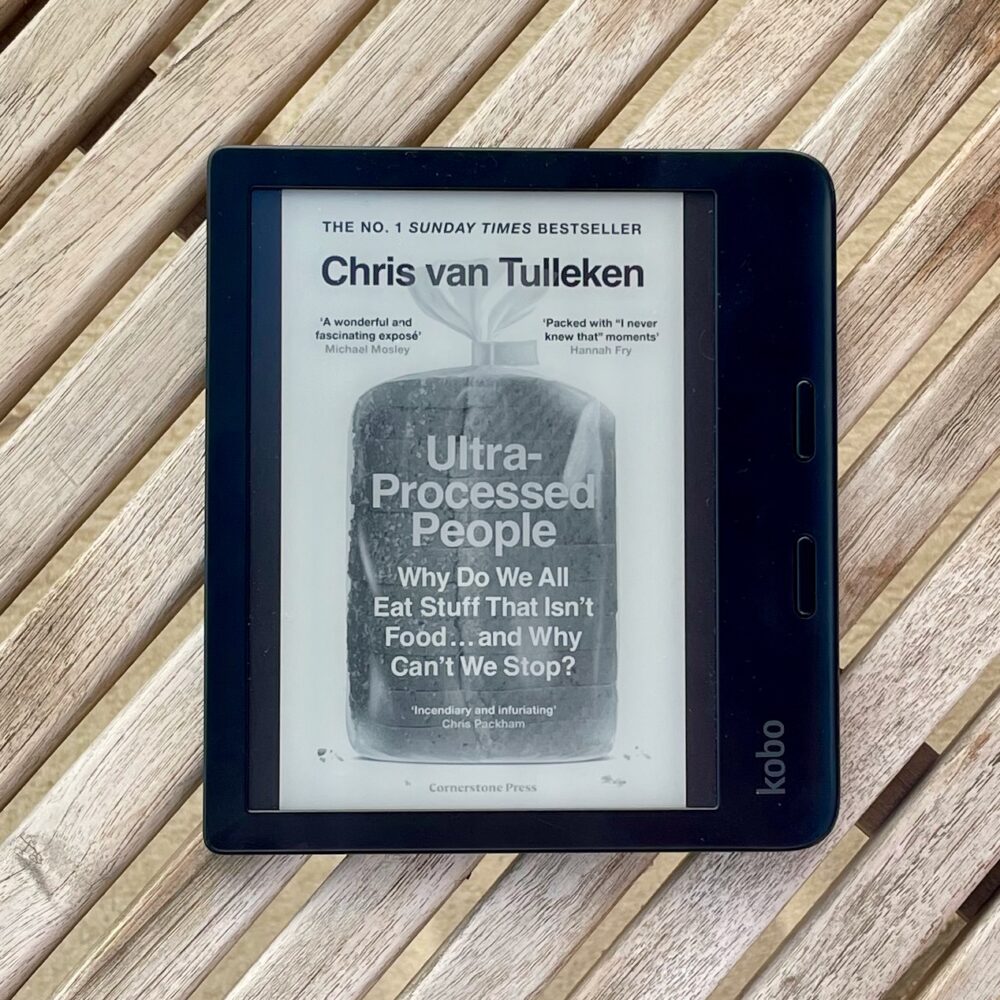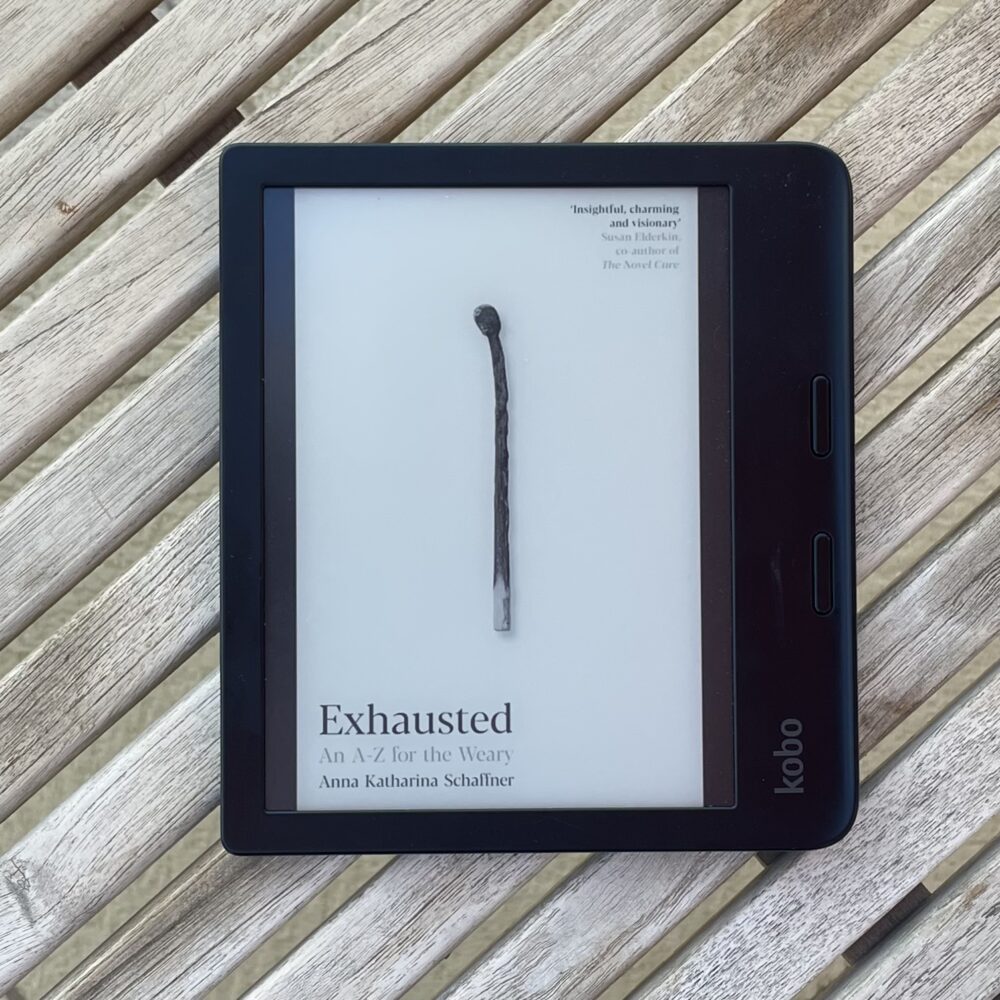The cover of this book caught my eye when it was first announced, but its subtitle—’an A-Z for the weary’—didn’t appeal. I imagined it to be a slightly patronising self-help book, and I didn’t buy it when it was published in January. This brief review in the TLS changed my mind, and I thought I’d give it a go.
The book is a literal A to Z, from ‘A is for Acceptance’ through to ‘Z is for Zeitgeist’. Each chapter is only a few pages long, but provides some genuine insight into burnout, and the relationship between modern work and exhaustion. Schaffner is a ‘burnout coach’, which is not the sort of title that fills me with confidence, but she is a great writer and clearly brings a wealth of experience and insight.
This isn’t a self-help book in as much as it isn’t directive: there are no instructions here for overcoming burnout. It’s a book designed to provide insight. Many of the chapters were about things that were already familiar—Bartleby the Scrivener, for example, or the Stoic philosophers—but I did find value in having Schaffner’s reflections on how these examples related to modern-day burnout.
So, I enjoyed this more than I expected.
Here are some passages that I highlighted:
The writer Jonathan Malesic defines burnout as the experience of being pulled between expectations and reality at work. We burn out, he argues, not because we are exhausted but because our hearts are broken. Our love for work went unrequited – it did not love us back. And nor did it bring us the dignity, purpose and recognition for which we hoped. Burnout, he writes, is ‘an ailment of the soul.
When we are in the grip of anhedonia, we often cannot even remember what used to bring us joy, and what it feels like to be properly alive, engaged, connected and full of zest. If that is you, then I urge you to find a hobby. This is not facetious advice for the following reasons: hobbies serve no purpose other than making the person who performs them happy. Like child’s play, they are unapologetically non-instrumental activities. They cannot be monetised nor utilised.
Sometimes, being caught in a bad situation can drain us of all vitality, even destroy our will to live. When we are that unlucky, we turn into ghosts, neither fully alive nor dead. We may continue to function at a physical level, but our spirits appear to have departed. Empty shells, we are incapable of experiencing joy. In fact, more often than not, we don’t feel anything at all. We have numbed our feelings to such an extent that we don’t even register the true scale of our suffering. And this is the point, of course: because it would be too devastating to hear what our feelings have to tell us, it is safer not to feel anything at all.
‘Within our power are opinion, motivation, desire, aversion, and, in a word, whatever is of our own doing; not within our power are our body, our property, reputation, office, and, in a word, whatever is not of our own doing.’ In other words, what tends to be within our control is our inner life, our judgements, our reactions and how we treat others, while most other things, including what people think of us, are not.
The news we are fed is almost unremittingly negative. Studies have shown that it triggers our limbic system and stimulates the release of cortisol, thus deregulating our immune system, inhibiting the release of growth hormones and making us more prone to infections. As well as making us more fearful, aggressive and desensitised to the suffering of others, it can become a source of chronic stress. It can also kill our creativity.
During those dark nights of the soul, when all hope is gone and we feel lost and alone, we still have one option: to do the next right thing.
Nothing ever goes away until it has taught us what we need to know.







